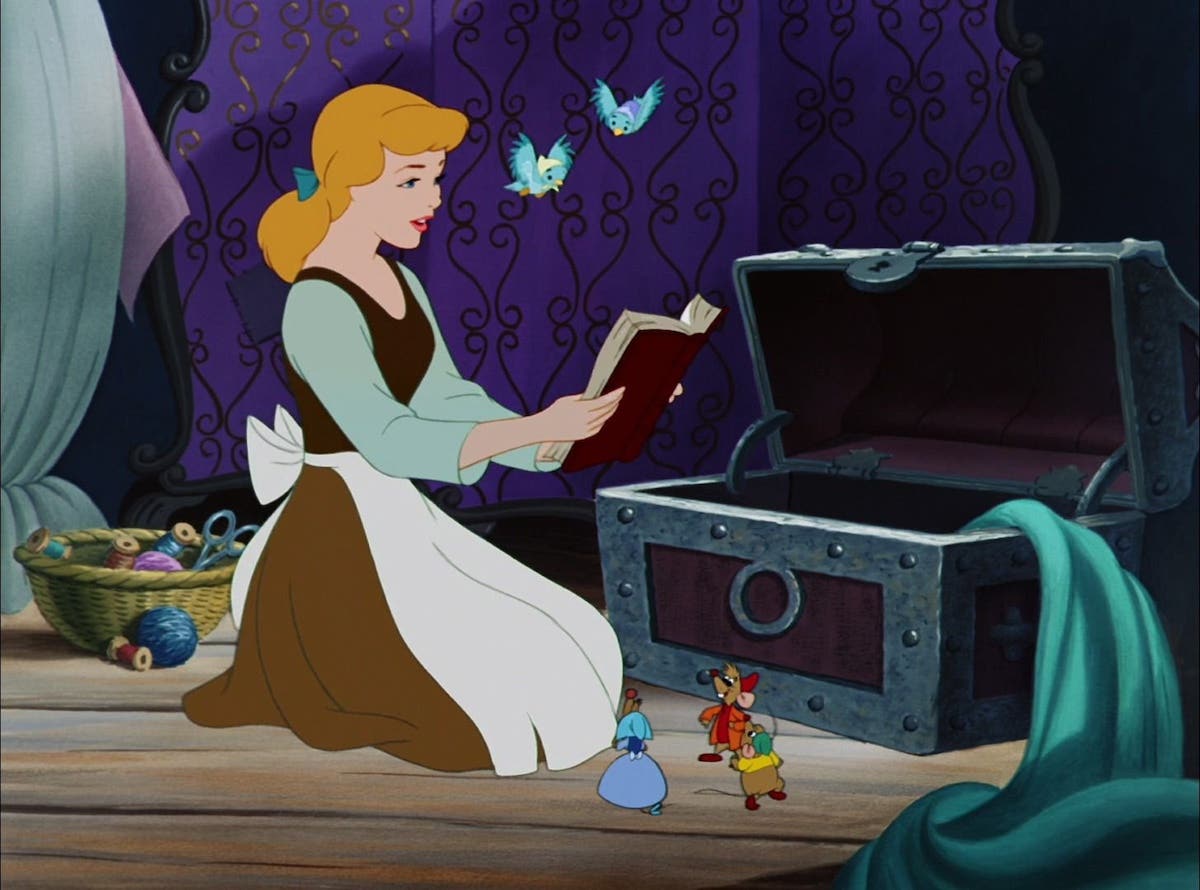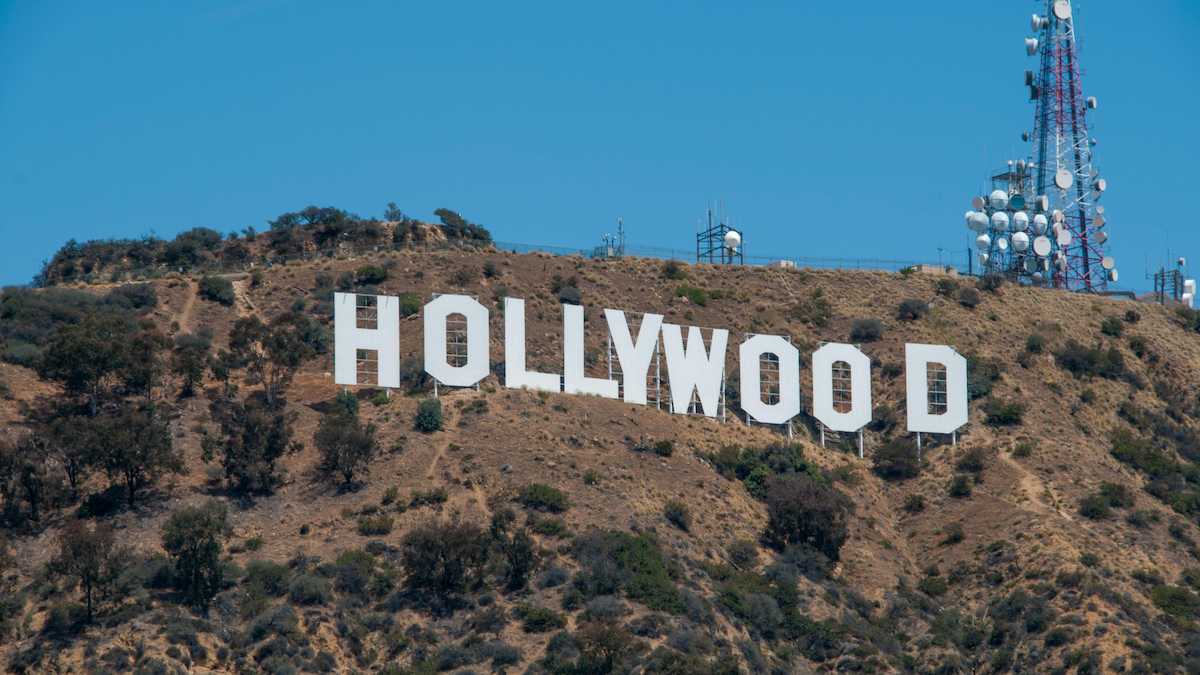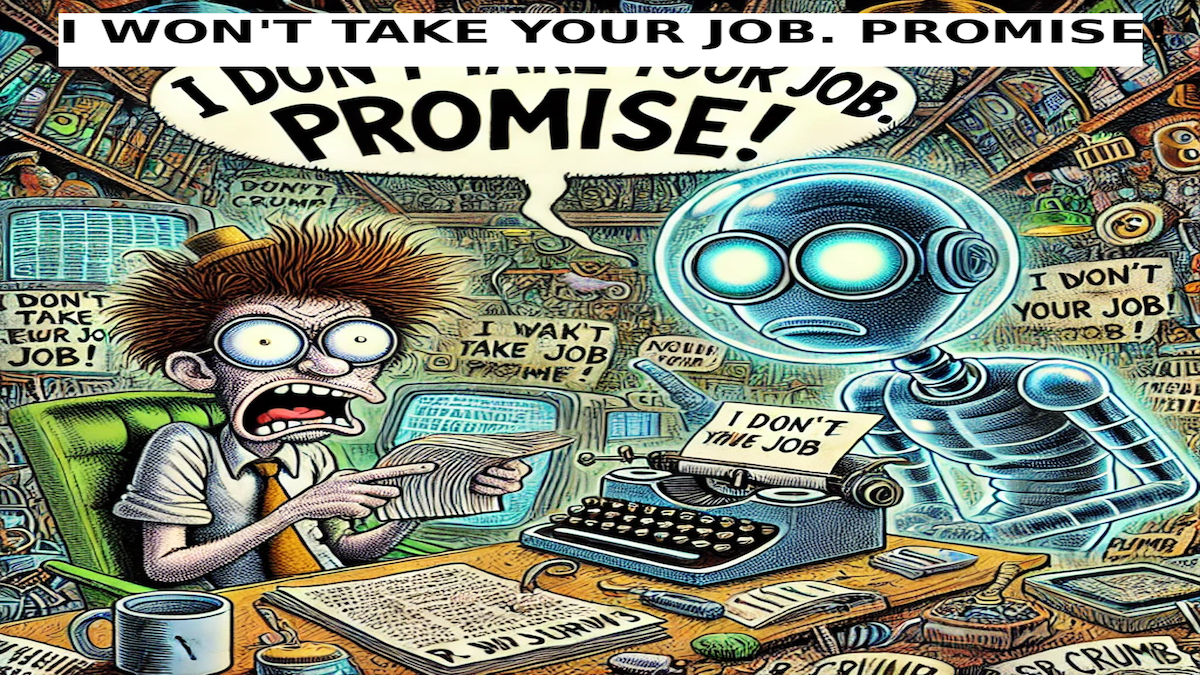INTERVIEW: 2012 Industry Insider Winners Dave Merlino and Dustin Sweet
The Writers Store interviews Dave Merlino and Dustin Sweet, winners of the fifth round of the Industry Insider Screenwriting Contest, about taking meetings, Randall Wallace, and successful writing partnerships.
In the fall of 2012, Dave Merlino and Dustin Sweet won the fifth round of the Industry Insider Screenwriting Contest with their script, “Bloodlines.”
Arriving at that moment was no small task. In years prior, they had established careers outside of the Industry—federal law enforcement and animation, respectively—and steadily honed their craft through nearly two decades of friendship.
We at the Writers Store have stayed in close contact with Dave and Dustin since their meeting with Randall Wallace and Benderspink. Recently in Los Angeles to take meetings, they were kind enough to take time out of their schedule to discuss everything from their early days of writing to the development of their winning script with the help of our own Story Specialist, Kay Tuxford.
Anyone interested in the most recent offering of the Industry Insider Contest or mentorship from our ScriptXpert Story Specialists, please visit writersstore.com.
And for more information on Dave and Dustin, you can visit runotentertained.com.
Without further ado, please enjoy our Writers Store interview with screenwriters, Dave Merlino and Dustin Sweet:
WS: Whose idea was it to originally submit to the Industry Insider Contest?
Dustin: Dave’s.
Dave: Dave’s. I actually have the Writers Store newsletter. I was going on vacation with my wife when the first contest came out—the one about the spy and the daughter knocks on his door. And, so I was sitting in Palm Springs in the hotel and we opened up a joint file and were working on it. But it never really came to fruition. So we sat out a couple of rounds. We tried entering the round Tyler won, but it didn’t make it to the finals.
Dustin: I was very sad.
Dave: It was a boo-hoo moment.
Dustin: We sat out another round. We said that we wouldn’t dive into contests and the day after we had this conversation about wasting our time with contests the Randall Wallace Round got released. And we’re like, well, we have to enter that-- we’ll win it.
Dave: We met in college and bonded over Braveheart. And all we’ve ever done is look up to Randall Wallace. Well, we’ll just enter this contest and we’ll win it and we’ll meet him. And it’ll be awesome and we’ll become best friends with Randall Wallace.
We actually almost didn’t enter because it took us a good solid month to come up with our idea. Our first seven were like, “that sucks."
Dustin: We’re also getting feedback on our first couple of scripts. You know, Bloodlines isn’t our first script we’ve written. It’s not the first thing we’ve had submission notes on and we’re getting these notes back on The Lucky Ones, which is a 100% love or 100% hate camp, there’s no middle ground there. People either think it’s the smartest zombie movie they’ve ever read or the worst piece of trash… so there’s no middle ground. We don’t have anybody, say, give it 80% or 20%--this is the best thing ever or nothing.
And so, we’re kicking around ideas for this war movie (Bloodlines) and it wasn’t until we sat down and were like, well, everybody’s gonna talk Afghanistan, purgatory, and Iraq and we’re like… this is Randall Wallace. Man, he wants to make a big--
Dave:Braveheart.
Dustin: Our love is Braveheart. We’d been kicking around this idea for the Edutilos world and we had these shorts we’d been working on. And Dave’s like, let’s just do a feature for it. And I was like, the feature for the Edulitos world’s going to be really expensive. And Dave’s like, we’re just writing it! It’s going to cost us the same thing.
So I’m like, yeah okay, let’s do it!
Dave: Randall Wallace, Dustin!
WS: What are your writing backgrounds?
Dave: I’ll take it back further. Dustin and I met in college. We always talked about how we were going to make movies. And we were going to do it, and we were going to do it, and I always came up with movie ideas. But life and career and everything got in the way until I was working in a two-man office and my partner in the office was a published novelist. And, he finally got mad at me one day and said, if you want to be a writer, you need to open your computer and start writing. That’s what you need to do. He’s like, forget about everything and start writing. And so, that’s kind of when we started. And so our writing background is that we have Masters Degrees in the School of Trial and Error.
But no--we started writing screenplays and thought they were great and the stories were great but then we realized that you need to have structure and not 9 page scenes of just talking.
Dustin: I started writing with SOMOS, which is the Society of the Muse of the Southwest when I was like, 12, 13 years old. I’ve been making short stories and comic books ever since.
WS: What did you like the most about being a Finalist in the Industry Insider Contest?
Dave: We liked the validation. I mean, I just left my job in the government and that’s a very straight “you do this, you work this long, and you get a pension” and my family didn’t understand why I would leave that. How do you go to the bank and get a loan as a screenwriter?
Dustin: You don’t.
Dave: And so then when we were named finalists in the contest, I was talking to my father-in-law, and I said, “there were over a thousand entries and we’re in the top ten.” And he looked at me and he said, “Okay, you have my attention now. Maybe you do know what you’re doing.” Yeah, thanks for admitting.
But I think, contest-wise, we just like it because it’s different. Every other contest you have your script written, you submit it and just sit back and wait and hope. And here, I don’t want to say you control your own destiny because you’re still competing against 9 people, but you--
Actually I’ll step back, we did Development Notes but we weren’t quite sure about the Story Specialist system because we didn’t quite know how we would interact with that.
It was nice as a finalist when we were all done—we proved we could work on a deadline and turn stuff in on time. We proved we could take notes and make that into something that was different than what we went in with. The movie that we came out with was not the movie we thought we were going to write when we made the finals.
When Dana called us and told us, “Oh you’re in the finals, I’m excited to see what you do with it,” I said, “that makes two of us.”
Dustin: I think Kay was the best thing for us that came out of that because we’d always talked about wanting to write and direct and get into the studio system. When you do it independently, you’re in control of everything. Something we write, [we ’re] on set and [we ’re] shooting it later and there’s not a lot of collaboration there.
But we wanted that larger system. And the real question was, can we play in that larger system? I mean, Dave and I: anyone who watches us interact is like, wow, those guys hate each other. We’re like, that’s not the case at all. So, how are other people going to react to that? How are we going to deal with their notes? What’s that process going to be like? Coming into it and working with a Story Specialist to get a better product than we would have had otherwise has been, I think, the reason we keep hiring [Kay].
Dave: And it was also the first time we’d written where we were told, “you need to have this done in 10 weeks. Period. End of story. If you don’t, you fail.” I mean, when you write a spec, it’s like, “Oh, the moment has struck and I shall write my movie…er, my script, because movies aren’t movies until they’re filmed.” And that was a big challenge for us that we took on. Apparently we did okay at it.
Dustin: I guess we know what we’re doing.
Dave: We did better the first time than the second.
WS: What was your meeting with Randall Wallace like?
Dave: It was amazing. He is probably one of the nicest guys we have ever met. I’m sure he’ll be fine with us telling this story: the night before we went to meet him, we paced around our hotel room the whole night, saying two things: A) Don’t kiss his butt, don’t kiss his butt, don’t kiss his butt…”, and B) “We really hope he’s not a jerk,” because this is a guy we’ve looked up to for years.
Dustin: Yeah, we had that moment of, “what if your hero is an asshole?” And like, you don’t want that to be true, but it happens. And it’s heartbreaking.
Dave: I was really nervous walking into the restaurant. This is the moment. And he was the nicest guy from the get go.
Dustin: Supercool.
Dave: And he sat down and he just kind of talked about us for a long time[…] And he’s like, OK, I can tell you guys are the real deal. You’re not in this to write a script and sell and get out. You want to be filmmakers and I respect that. And we’re going to have to hang out more. And it’s kind of like that Wayne’s World moment, we’re like:
Dustin: “We’re not worthy! We’re not worthy!” But then he was really cool. He told us this great story about meeting Mel Gibson and spending the night beforehand doing the thing we had done the night before being like… “Don’t kiss his ass, don’t kiss his ass…” It was really good; Randy has been a really cool friend for the last year and a half. He’s taken time out of his schedule to meet with us. He’s given us a lot of direction.
Dave: Actually, we talk to his son Andrew a lot. Andrew read our scripts two weeks before we filmed Happy Birthday, Dad. We’re in that “every person we talk to is a new check to write.” And you start freaking out. We had a budget and this is getting dangerously close to the budget, I haven’t even paid for this yet. And, “Oh My God, this movie doesn’t have anything that explodes in it! We don’t know what we’re doing!” So we e-mailed Andrew and he said, “I’d love to read it. “ He read it and got back to us in half an hour and said, “I love it. You guys are golden.”
Dustin: Yeah, he has a golden, “Don’t worry about it. Keep going. Keep spending money. “ Thanks Andrew, we’ll take that under advice! But it really calmed our nerves and people liked the movie.
WS: What was your meeting with Benderspink like?
Dave: That was another one that we were nervous going into. You don’t get to just call up Benderspink and say, “Can I have a meeting with you guys?” Daniel Vang was just a really nice guy.
It was interesting because we made a tactical decision to write a big epic movie to appeal to Randall Wallace and get to meet Randall Wallace. On the other hand, we wrote a big epic movie as first time writers.
Dustin: Yeah, Benderspink’s not going to give us $250 million dollars to go shoot this movie, right? From these two unknown guys?
Dave: So that’s the tone of the meeting going in. He’s meeting with us, but there’s no way he’s going to make our movie. And we knew there was no way they were going to make our movie. So at first it was kind of like, OK, well that’s cool. As we talked more… I think the funniest part is when Dustin said, “Oh, well we’d also like to direct.” And I saw in Daniel’s eyes--they kind of glazed over for a second.
Dustin: Yeah, he definitely heard I wanted to direct Bloodlines, which is not the case at all.
Dave: Yeah, cause a thousand other times he’s had writers go, “well, I’m going to sell it to you but I need to direct it as well and I’d like to be co-producer with Stephen Spielberg and…” And he took a second and said, “Well, directing is a really powerful way to control your own work, but if you’re saying want to direct Bloodlines…” And I was like, “No. If you offered it to me I would not take it. I’m not going to take a $250 million dollar corporation with a thousand employees shooting probably on three different continents as my first movie, because you might as well fire me and tell me never to come back to Hollywood."
We are directing. We bought our own equipment, we bought our own company. We are directing our own stuff to develop the craft. We don’t need to direct what we write and we don’t need to write what we direct. And that’s when he became interested, “Okay that shows me that we’re working, we’re serious, and we don’t just want to sell Bloodlines and get out and go sit on our pile of money, that in reality everyone knows screenwriters aren’t going to get. And so he’s actually read a couple more of our scripts. Really nice guy, we e-mail him. It’s a good relationship that we developed.
In fact, it’s exactly like Kay said going into the meeting, “your goal is to have them interested with you when you leave. You’re not going to sign with anyone like that when you just met them 10 minutes ago." [Kay’s] advice on that is kind of what allowed us to win that meeting.
We didn’t go in, pie in the sky, “we’re going to sign with Benderspink! This is going to be great!”
WS: What made you want to re-enter the contest? And what benefit did you see out of it?
Dustin: We really like working with Kay; she makes our stories better.
Dave: The logline. It was a logline that we knew we could write. It was a police logline and I spent eight and a half years working federal law enforcement. I looked at it and was like, we can write that!
It was nerve-wracking to be a second-time finalist, especially after having won the first time we were finalists. Like, is this our put up or shut up moment? If we don’t win, are we a flash in the pan? I know it’s not rational, that’s not the way it works, but it’s in the back of your mind when you enter. But, even if we didn’t win, we knew we were finalists again. But we were going to come out of it with a good script--a script that was shopable. This was a finalist in the contest.
Dustin: I don’t like to bring it back to Randall so much, but we were talking about what’s the next step in our career. You know, we had a couple of contest wins, some short films made, what’s the next thing we can do?
We decided, after coming to a couple of Pitchfests, that we needed to be in town for a couple of months. And so we were having lunch with Randall on the Sony lot and we asked when we should be here. Cause we were thinking we should be here over the summer time. He waived us off from that. “Nobody’s here in August. Because nobody’s here in August, nobody’s here in July. And because nobody’s here in July, like, mid-June people start bailing.” And so, we’re like…
Dave: “Oh, it’s like Congress!” So he said we need to come in the fall. We told our wives Randall Wallace told us to come to Hollywood in the fall, so we’re going to do that. Like, how do you say no to Randall Wallace’s advice?
Dustin: We had already decided we were going to go—try to figure out how to square it with our wives, who are not so happy with us right now.
Dave: No prob.
Dustin: Yeah, they’re fine.
(giggles)
Dave: But, we knew we were coming down here. We knew the contest would be getting done, you know scriptwriting-wise, before we got here.
Dustin: We’d have something we could walk around town with. And we’d be happy with. So for us, really just getting into the top ten and being able to have the opportunity to work with a Story Specialist and develop the best script that we could—that was our win. And in May or June, or whenever (when Finalists were announced) we were like, yeah no, we’ve won.
Dave: But let’s be honest, my ego still wanted to win.
Dustin: Oh, so bad! Oh my god. So many late nights. Cause we shot Happy Birthday, Dad father’s day weekend. We’re talking in February about what we’re going to do for the next year, and it’s like, well… maybe we’ll get into this contest, but we’re not going to put all of our ponies into that basket.
Dave: We’re not arrogant enough to think, “Oh, we’ll enter it and just get in. We’ll beat out 1000 other people.” So we had a back-up plan.
Dustin: So we scheduled this film shoot. …
Dave: It was the weekend our Story Specialist sessions began.
Dustin: We made our Story Specialist so mad at us because for the first 2-3 weeks-
Dave: We were waaaay behind.
Dustin: So behind.
Dustin: I think if it hadn’t been Kay, if it had been somebody else, they would have thrown in the towel right there. Cause for the first month we were just like, “Yeah, we have this movie we’re doing, sorry!”
Dave: Well, actually we’re lucky to have done that through the contest because that script ended up being 50 times more complicated that we thought it would be. I don’t know if we would have finished that on our own.
Dustin: I know we wouldn’t have. I can honestly say, because we had somebody else to answer to. Because she knows how to drive us!
Dave: Yeah, I don’t think 30 Days to Life would have been born without this contest.
What do you guys think about working in a writing partnership for yourself?
Dustin: We answer this question a lot at Pitchfests. Dave and I have been friends for 17 years. I was in his wedding. He was in my wedding.
Dave: My kids call him Uncle Dustin.
Dustin: And my little girl thinks Dave’s her uncle.
Dave: So we have a bit different of a relationship.
Dustin: I wouldn’t recommend it to anyone.
Dave: But our relationship, it’s allowed us to be honest with each other. And if you’re going to be writing partners, you need to be honest. Dustin can call me or I can call Dustin, we can pitch an idea—not just an overall idea—but an idea for a story we’re working on, and I don’t feel bad telling Dustin, “That’s really dumb.” Or vice versa. Because we know, tomorrow when we wake up, we’re still going to be friends.
Dustin: Yeah, I’m not worried about Dave’s opinion. I actually want his opinion about my idea.
Dave: But, that allows us to get—whenever we’ve started a script, at the end, it’s not the script either of us thought it would be. I mean, we know our overall tone and idea, but we come from two different worlds. That allows us to walk towards the middle every time I tell him his idea won’t work or you need to think about what that’s going to do.
Dustin: It’s really interesting to me to look at our different voices. Like, Dave’s voice is very distinct and my voice is very distinct, but our voice together is this way better thing. It’s the reason I’ve stayed with this partnership so long.
Dave: If you’re going to be writing partners, having watched other writing teams that don’t start with that friendship background—you know, it’s a business deal. People aren’t sure. “Oh, I’ve just met this guy, or I’ve just met this girl….” I think they’re afraid to say what they think about an idea. And then suddenly you’re both writing a script that neither of you really likes.
If that’s the case, it’s not going to be a good script. You need to be able to tell your writing partner you don’t like an idea and you have to back it up. I can’t just be like “that’s dumb!” I can be like, “that’s a dumb idea… BECAUSE it’s going to kill the hero’s arc or it’s going to make the hero look bad because the hero could not protect the person he’s said he was going to protect."
Dustin: Which leads to dialogue—because when you pitch and idea, you’ve got an idea for a thing, it’s never [exactly] the sentence that comes out of your mouth. When I say, “John needs to have a black hat,” it’s because I’m trying to say John is a villain and we need to signify he is a bad guy.
Dave: And I’m like, who cares what he’s wearing!
Dustin: It’s got to be able to lead to that larger conversation.
WS: Should I get a writing partner?
Dustin: God no! (laughs)
Dave: I’d say, yes. Dustin and I could write scripts on our own. They would not be the same scripts. And, filmmaking is a collaborative process. If you cannot collaborate with a writing partner, you cannot collaborate with a director or a producer. If you cannot collaborate, your film is not going to get made.
I think that has helped us in the bigger picture because we learned a long time ago that there are no sacred cows. There were things I really wanted [when I first started]--like when we first got an idea, we had to have that idea, and I had to have that scene – and if I was writing on my own I’d probably would’ve tried to shoe-horn it in there.
Dustin: Yeah, all joking aside, working with a partner to create a better script makes you a better writer—there’s no two ways about it.
In my opinion, the only thing you can do to make any artwork stronger is to collaborate. I come from animation where the thing I make is not the thing we made. The thing I make is some flat, lame thing, but then 20 other people do their job and all of a sudden we have a beautiful piece of collaborative artwork.
Enter Industry Insider Screenwriting Contest Today!
Top screenwriting and film publication, founded in 1989, published by Active Interest Media. Twitter: @scriptmag



![The Era of the Multi-Hyphenate: An Interview With Writer and Filmmaker Mario O. Moreno [SERIES]](https://scriptmag.com/uploads/MjEzMTEyNzA4NjQ2NTc3NjE1/the-era-of-the-multi-hyphenate-series-script-hero.png?format=auto&optimize=high&width=1440)



